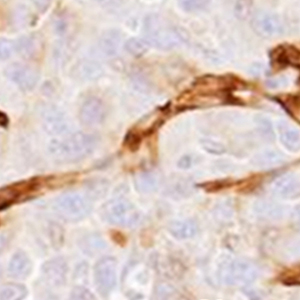 Smart Citations
Smart CitationsSee how this article has been cited at scite.ai
scite shows how a scientific paper has been cited by providing the context of the citation, a classification describing whether it supports, mentions, or contrasts the cited claim, and a label indicating in which section the citation was made.
Neurokinin-1 receptor is highly expressed in cervical cancer and its antagonist induces cervical cancer cell apoptosis
Neurokinin-1 receptor (NK1R) belongs to tachykinin receptor family. Recent studies have suggested that NK1R was upregulated in cancer tissues including breast cancer, glioma and melanoma. Furthermore, NK1R antagonists have been employed to exert anti-tumor effect and promote cancer cell apoptosis. However, the role of NK1R in cervical cancer remains largely unknown. In this study, we aimed to detect the expression of NK1R in cervical cancer and evaluate the anti-tumor effects of NK1R antagonist on cervical cancer cells. We found that NK1R was highly expressed in cervical cancer tissues than in adjacent normal cervical tissues. Furthermore, by using NK1R antagonist we demonstrated that NK1R antagonist inhibited the viability and induced the apoptosis of cervical cancer cells in a dose-dependent manner, and the mechanism may be related to the inhibition of ERK activation and the regulation of apoptosis proteins Bcl-2 and BAX. In conclusion, these findings suggest that NK1R plays an oncogenic role in cervical cancer and is a promising target for cervical cancer therapy.
Ethics Approval
This study was approved by Ethics Committee of Hebei Medical University (approval No. 2018019)Supporting Agencies
Hebei Province Medical Science Research Key Project ProgramHow to Cite

This work is licensed under a Creative Commons Attribution-NonCommercial 4.0 International License.
PAGEPress has chosen to apply the Creative Commons Attribution NonCommercial 4.0 International License (CC BY-NC 4.0) to all manuscripts to be published.









